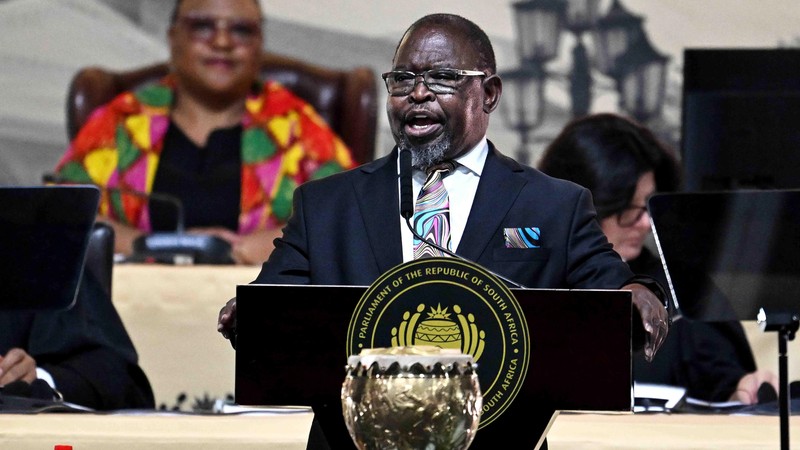Finance Minister Enoch Godongwana has proposed an inflation-linked increase to the general fuel levy in a bid to increase revenue to protect and bolster frontline services, and he has warned of additional tax measures in the future.
This move comes after the tax proposals, including a VAT increase of 1%, announced on March 12, came under fire politically and were scrapped. Godongwana said in the context of weaker-than-anticipated global and domestic economic growth, additional revenue and expenditure measures are required to stabilise the public finances.
During his third budget speech this year, Godongwana said that for the 2025/26 fiscal year, this is the only new tax proposal that he is announcing.
“This is the first fuel levy increase in three years. It means from the fourth of June this year, the general fuel levy will increase by 16 cents per litre for petrol, and by 15 cents per litre for diesel,” he said.
According to Godongwana, unfortunately, this tax measure alone will not close the fiscal gap over the medium term.
“The 2026 Budget will therefore need to propose new tax measures, aimed at raising R20 billion. We have allocated an additional R7.5bn over the MTEF (Medium-Term Expenditure Framework) to increase the effectiveness of the South African Revenue Service in collecting more revenue. Part of this allocation will be used to increase collections from debts owed to the fiscus,” he said.
Godongwana said Sars (South African Revenue Services) has indicated that this could raise between R20bn to R50bn in additional revenue per year.
“Another part of the additional allocation to Sars will be used to improve modernisation. This will include targeting illicit trade in tobacco and other areas, which should boost revenue over the medium term,” he said.
Godongwana said that as Sars utilised this investment to raise additional revenue, which he believed could be at least R35bn, the R20bn to close the current revenue gap will not have to be raised through taxes.
The National Treasury said tax policy measures proposed in the budget would raise an additional R18bn in 2025/26, and an additional R20bn in tax measures will be proposed in the 2026 Budget. These policy measures will be reassessed if Sars can raise additional revenue through more efficient tax administration and higher tax compliance.
“Let me call on every South African, be they individuals, small business operators or large corporates, to honour their tax obligations and contribute to building a better and more equitable nation. To all the taxpayers who continue to pay their taxes, thank you.,” he said.
Godongwana said the government was not deaf to the public’s concern about wasteful and inefficient expenditure and that it recognised the urgent need to do more to achieve this goal.
“Our commitment to collect taxes must be matched by better efficiency in how that money is spent. It must be matched by much stricter oversight that quickly identifies problems and provides timely solutions when things go wrong,” he said.
Treasury said in 2025/26 and 2026/27, main budget revenue is expected to be R11.3bn higher than the 2024 Budget estimates, mainly reflecting the impact of tax increases, higher non-tax revenue, and lower Southern African Customs Union payments.
“Main budget expenditure as a share of GDP is expected to moderate over the medium term, primarily due to slow growth in non-interest expenditure,” it said.
Visit: www.businessreport.co.za
